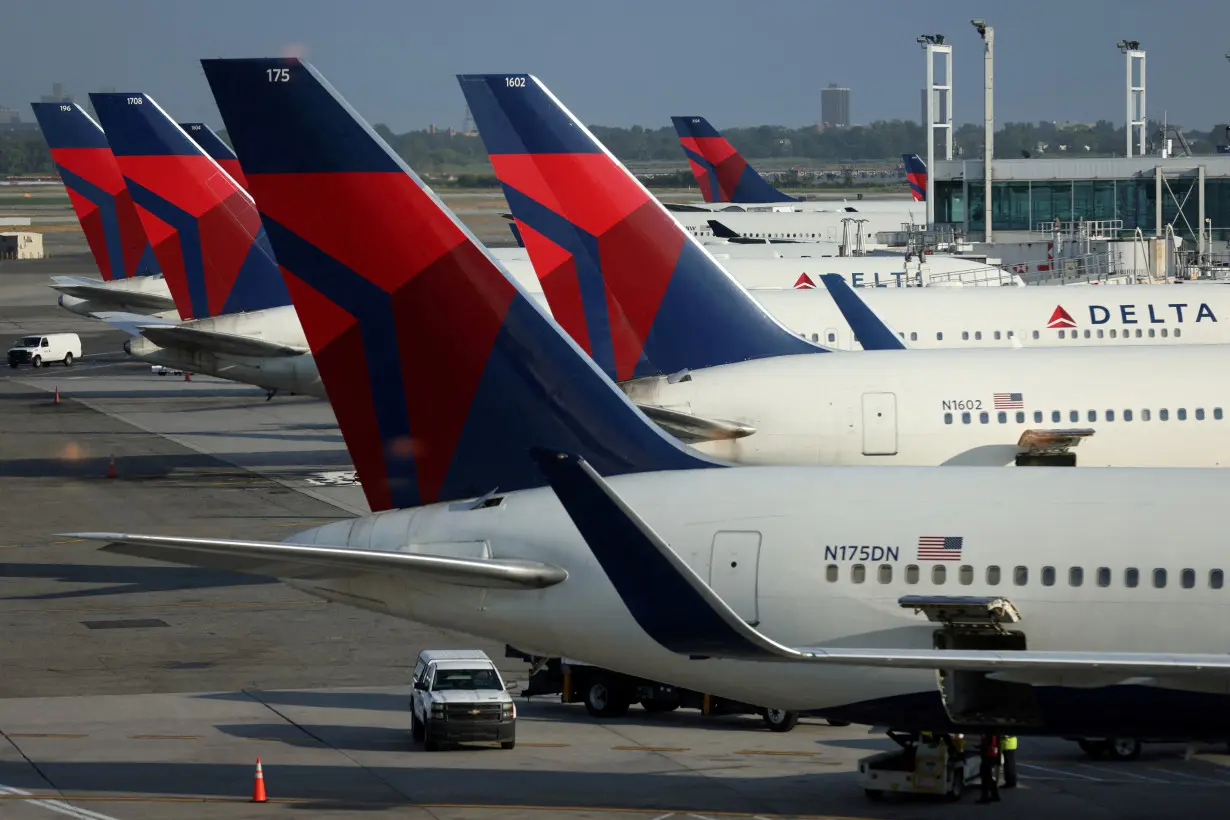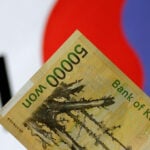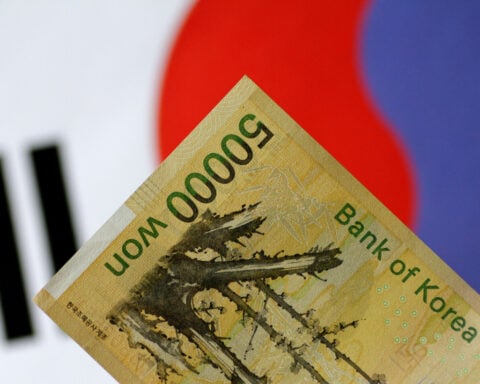By Rajesh Kumar Singh and Shivansh Tiwary

(Reuters) -Delta Air Lines on Thursday said its pricing power will "significantly" improve August onwards as U.S. carriers slow down seat capacity growth in the domestic market to ease discounting pressure.
The comments came after the Atlanta-based airline forecast a lower-than-expected profit for the third quarter as excess industry capacity has dampened airfares in the low end of the market.
"We are encouraged by actions the industry is taking," CEO Ed Bastian told analysts on an earnings call. "Seat growth is decelerating, and there appears to be increased focus on improving financial performance."
Those remarks helped Delta's stock pare losses. It shares were down 5.4% at $44.30, after falling as much as 10% in morning trade.
Rivals United Airlines and American Airlines were down nearly 5% each.
Domestic peer Southwest Airlines was also down 3%, while European rivals Lufthansa and British Airways owner IAG fell between 1% and 2%.
Delta forecast an adjusted profit between $1.70 and $2.00 per share in the third quarter through September compared with analysts' expectations of $2.05, according to LSEG data.
Airlines are enjoying a summer travel boom, with more than 3 million people passing through U.S. airport security checkpoints in a single day on July 7.
However, a rush among carriers to capitalize on summer travel demand has caused overcapacity, undermining their pricing power.
Major airlines have scheduled about 6% more seats in the domestic market this month than a year earlier, data from consultancy Cirium shows.
Average round-trip ticket price for a U.S. domestic flight was $543 in May, down 1% month-on-month and 3% lower from a year earlier, according to data from Airlines Reporting Corporation (ARC).
American Airlines and Southwest have cut their revenue forecasts in the second quarter, citing discounting pressure. The impact is more telling on ticket prices for main cabins.
Delta's revenue from main cabins, which generate about 49% of its passenger revenue, was flat in the June quarter. In contrast, revenue from premium cabins was up 10% year-on-year.
"This (Delta's earnings) print will likely raise concerns about industry health and lead to more pressure on low-cost carriers and ultra-low-cost carriers to cut capacity," TD Cowen analysts said.
Delta's executives, however, played down worries about the industry's health, saying airlines have been quick in responding to the oversupply situation.
The company sees its domestic unit revenue, a proxy for pricing power, inflecting positively in September as industry capacity growth moderates from high-single to low-single digits. It expects its annual seat capacity growth to be 5%-6% in the third quarter, compared with an 8% growth in the second quarter.
Delta also warned of a $100 million hit between June and August as travelers are avoiding Paris due to the Olympic Games this summer.
The airline reported an adjusted profit of $2.36 a share for the second quarter, in line with analysts' estimates. The company reaffirmed its forecast for a profit of $6 to $7 per share in 2024 with a free cash flow of $3 billion-$4 billion.
(Reporting by Rajesh Kumar Singh in Chicago and Shivansh Tiwary in Bengaluru; Editing by David Gregorio, Shounak Dasgupta and Nick Zieminski)

 Stock market today: Asian stocks mixed ahead of US inflation data
Stock market today: Asian stocks mixed ahead of US inflation data
 TikTok seeks to reassure U.S. employees ahead of Jan. 19 ban deadline
TikTok seeks to reassure U.S. employees ahead of Jan. 19 ban deadline
 US won't seek charges in unarmed Black motorist Ronald Greene's fatal 2019 arrest
US won't seek charges in unarmed Black motorist Ronald Greene's fatal 2019 arrest
 Euro zone households could increase consumption, ECB chief economist says
Euro zone households could increase consumption, ECB chief economist says
 Foreigners sold South Korean equities last month by most since early 2020
Foreigners sold South Korean equities last month by most since early 2020
 As fires ravage Los Angeles, Tiger Woods isn't sure what will happen with Riviera tournament
As fires ravage Los Angeles, Tiger Woods isn't sure what will happen with Riviera tournament
 Antetokounmpo gets 50th career triple-double as Bucks win 130-115 to end Kings' 7-game win streak
Antetokounmpo gets 50th career triple-double as Bucks win 130-115 to end Kings' 7-game win streak
 No 97 Laura Siegemund upsets Olympic champion Zheng Qinwen at the Australian Open
No 97 Laura Siegemund upsets Olympic champion Zheng Qinwen at the Australian Open







